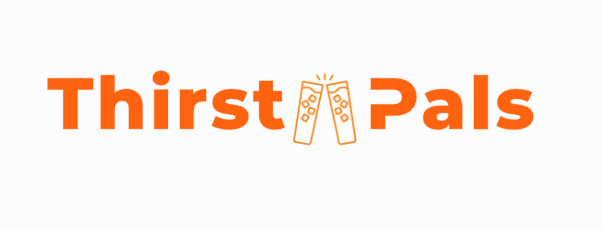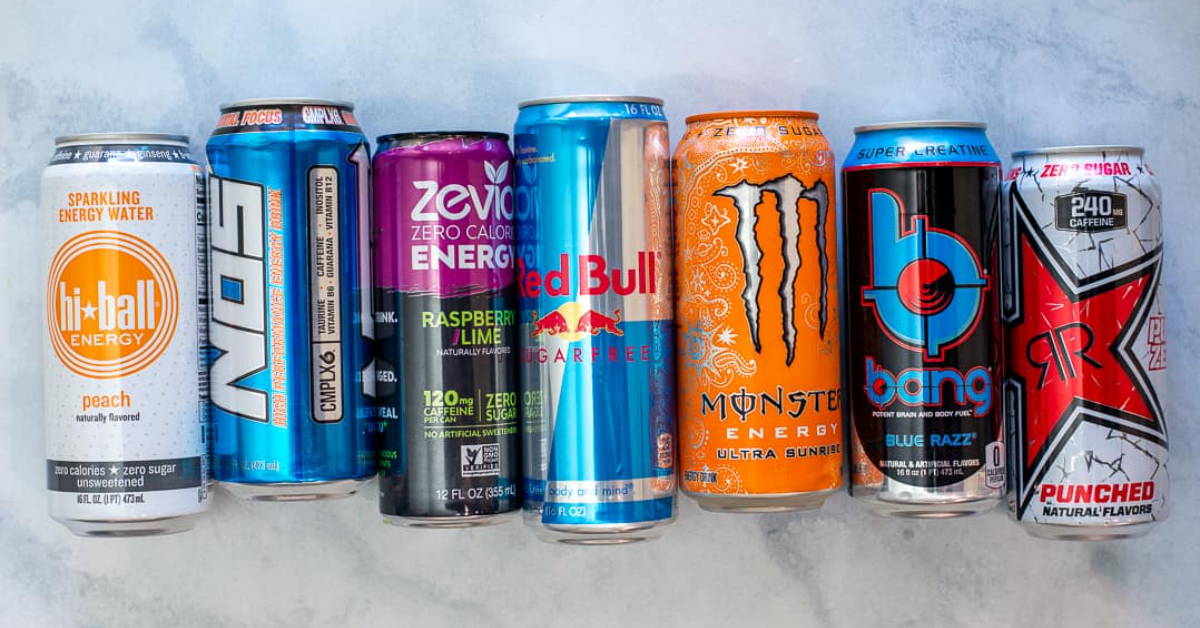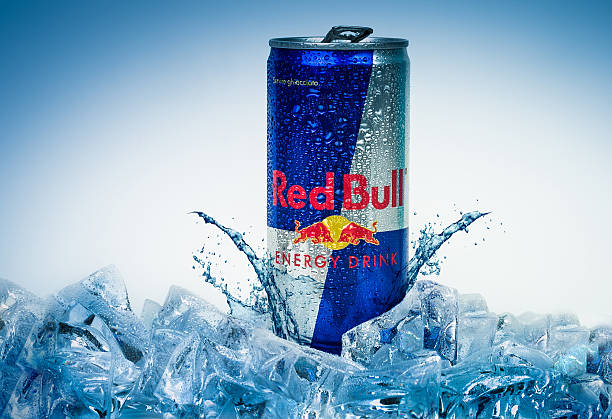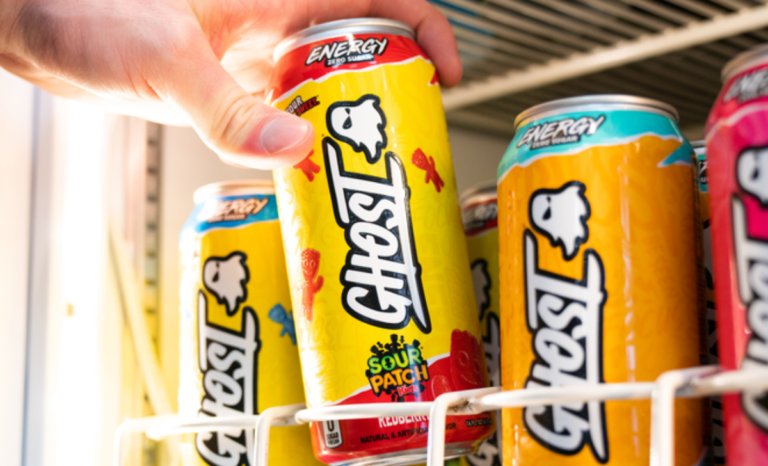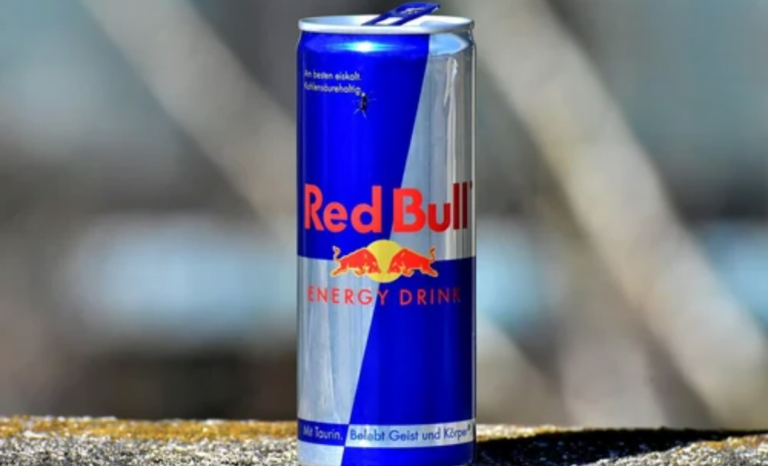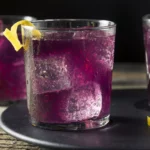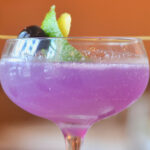Breastfeeding mothers often find themselves in need of an energy boost, especially during sleepless nights and demanding days. The allure of energy drinks as a quick solution to combat fatigue is understandable, but for breastfeeding mothers, questions often arises: Can I drink Celsius energy drink while breastfeeding?
The short answer, according to health experts and the manufacturer themselves,
It’s not recommended to drink energy drinks like Celsius while breastfeeding due to their caffeine content and additional ingredients. Caffeine can pass into breast milk, affecting the baby’s sleep and causing fussiness.
Moreover, certain ingredients in energy drinks lack sufficient research on their safety during lactation.
So, it’s best to avoid Celsius and other energy drinks like it while breastfeeding. While a sip here and there might not cause immediate harm, there are potential risks you should be aware of.
Celsius energy drink is known for its unique blend of ingredients, including caffeine, taurine, guarana extract, and ginseng. These components are commonly found in energy drinks and are known for their stimulant properties.
For breastfeeding mothers, understanding the impact of these ingredients is crucial in making informed choices.
Today, We are going to share what are side effects of drinking energy drinks like Celsius while breastfeeding, what amount of energy drinks is safe for your baby, what energy drinks are safe while breastfeeding and what can you use for energy besides energy drinks.
Can I drink Celsius Energy drink while breastfeeding
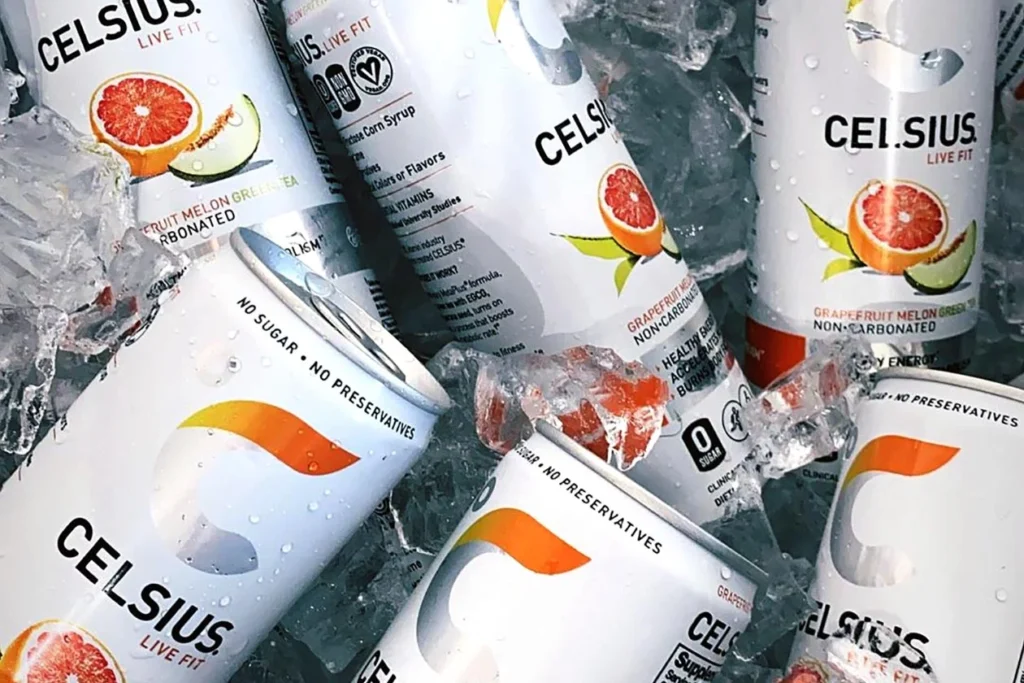
The burning question for many breastfeeding mothers is :Can I drink Celsius Energy drink while breastfeeding. The general consensus is that, yes, you can enjoy energy drinks while breastfeeding, but with a crucial caveat – moderation.
It’s essential to carefully read the labels and opt for energy drinks containing less than 300 milligrams of caffeine. Excessive caffeine intake can have adverse effects on both the mother and the baby.
The International Sport Society has acknowledged the need for further studies on the safety of the ingredients in energy drinks, emphasizing the importance of prudence when making dietary choices during the breastfeeding phase.
Also Read: Does Celsius Have Alcohol?
Celsius Energy Drink Ingredients and Potential Concerns for Breastfeeding Women
| Ingredient | Amount per Can (12 fl oz) | Potential Concern | Recommended Intake for Breastfeeding Women | Source |
|---|---|---|---|---|
| Caffeine | 200mg | Affects baby’s sleep, fussiness, irritability | ≤300mg per day | AAP |
| Guarana | 40mg | Similar to caffeine, potential for side effects in baby | No established recommendation, caution advised | NCCIH |
| B-Vitamin Fortification | Varies by flavor | May exceed baby’s needs, potential side effects | No established recommendation, consult healthcare provider | UCSF |
| Sucralose (Artificial Sweetener) | 34mg | Limited safety data, potential effects on gut bacteria | Avoid or limit intake | NIH |
| Citric Acid | 750mg | May increase acidity in breast milk, potential discomfort for baby | No established recommendation, monitor baby’s response | FDA |
Additionally, caution is advised for those taking vitamins and herbal supplements, as energy drinks may contribute to potential vitamin toxicity.
So, It is advisable to exercise caution when considering Celsius Energy drinks while breastfeeding. Celsius Energy drinks contain caffeine, a stimulant that can pass into breast milk.
While moderate caffeine intake is generally considered safe during breastfeeding, exceeding recommended limits can lead to potential issues for both the mother and the baby.
Read more: Is Celsius Energy Drink Keto Friendly?
Why can’t you drink Energy drinks like Celsius while breastfeeding?
The American Academy of Pediatrics (AAP) recommends that breastfeeding mothers limit their caffeine intake to no more than 300 milligrams per day. This is to prevent potential negative impacts on the baby’s well-being.
Exceeding this limit may increase the risk of caffeine-related issues, making it essential to be mindful of the specific caffeine content in Celsius.
Breastfeeding mothers are advised against consuming energy drinks like Celsius due to their high caffeine content, additional stimulants, and high sugar levels.
Excessive caffeine can cause irritability and disrupt the baby’s sleep, while other stimulants and ingredients lack conclusive safety evidence during lactation.
High sugar content raises concerns about potential health impacts on the baby. The lack of clear labeling exacerbates these risks, making it safer for breastfeeding mothers to opt for alternatives with lower caffeine and sugar levels.
Did you know Sugar-Free Energy Drinks Like Celsius are Bad for Your Teeth due to acidic components in them.
Caffeine and breastfeeding: Risks and Limits
Caffeine, a central component of energy drinks, is a stimulant known for raising heart rate and blood pressure.
As we know, experts recommend a maximum daily caffeine intake of 300mg for breastfeeding mothers. Most energy drinks contain approximately 80-150mg of caffeine per eight ounces, equivalent to about five ounces or 140 grams of coffee.
Caffeine Content in Various Energy Drinks:
| Energy Drink | Serving Size (oz) | Caffeine Content (mg) |
|---|---|---|
| Celsius Energy Drink | 12 oz | 200mg |
| Red Bull | 8.4 | 80 |
| Monster Energy Drink | 16 | 160 |
| 5-Hour Energy | 2 | 200 |
| Mountain Dew Kick Start | 16 | 90 |
| NOS Energy Drink | 16 | 160 |
| Rockstar Energy Drink | 16 | 160 |
| V8 Fusion Energy Drink | 8 | 80 |
| Starbucks Tripleshot Energy | 15 | 225 |
| Starbucks Refresher, Can | 12 | 50 |
Research indicates that less than 1% of the caffeine consumed by the mother makes its way into breast milk.
While moderate caffeine intake is generally considered safe, infants sensitive to caffeine may exhibit fussiness, irritability, and difficulty settling, potentially affecting feeding patterns. As a result, it’s advisable to avoid excessive caffeine consumption while breastfeeding.
While moderate caffeine intake through sources like coffee or tea is generally considered acceptable during breastfeeding, energy drinks like Celsius present additional concerns due to their high caffeine content, additional stimulants, high sugar levels, and inadequate labeling transparency.
To ensure the safety of both the mother and the infant, healthcare professionals typically recommend avoiding or limiting the consumption of energy drinks during the breastfeeding period.
Decoding Energy Drink Ingredients and Effects on breastfeeding
Decoding the ingredients in energy drinks reveals a complex mixture beyond just caffeine, and understanding how these components may affect breastfeeding mothers is crucial.
Sugars
Energy drinks often rely on high-fructose corn syrup or sucrose as their main energy source. Prolonged exposure to these sugars raises concerns about insulin resistance and obesity in consumers.
For breastfeeding mothers, the worry extends to the potential passage of fructose into breast milk, prompting questions about its impact on the nursing baby.
Celsius drinks are marketed as sugar-free or very low in sugar. The exact sugar content may vary among flavors, but many Celsius beverages are sweetened with sucralose or stevia as sugar substitutes.
Read our detailed analysis of Are Celsius Energy Drinks Healthy For You?
Let’s compare the sugar content of some popular energy drinks, including Celsius:
| Energy Drink | Size | Sugar Content |
|---|---|---|
| Celsius | 12 oz can | Varies (often sugar-free or low sugar) |
| Red Bull | 8.4 oz can | 27 grams |
| Monster Energy Drink | 16 oz can | Approximately 54 grams |
| 5-Hour Energy | 2 oz bottle | Sugar-free (sweetened with artificial sweeteners) |
| Mountain Dew Kick Start | 16 oz can | 20 grams |
| NOS Energy Drink | 16 oz can | Approximately 54 grams |
| Rockstar Energy Drink | 16 oz can | Approximately 24 grams |
| V8 Fusion Energy Drink | 8 oz can | 26 grams |
| Starbucks Tripleshot Energy | 15 oz can | Approximately 38 grams |
| Starbucks Refresher, Can | 12 oz can | Approximately 14 grams |
As you can see, a single can of Celsius packs a hefty sugar punch. The recommended daily sugar intake for adults, including lactating women, is limited. According to the American Heart Association, women should aim for no more than 6 teaspoons (25 grams) of added sugar per day.
The need for moderation in sugar intake is emphasized, as excessive consumption may lead to adverse health effects for both the mother and the infant.
Taurine
Taurine, an essential amino acid with sulfur content, is a common ingredient in energy drinks. Breast milk naturally contains substantial levels of taurine, and while supplementation may not be necessary for lactating mothers, the effects of additional taurine intake through energy drinks remain uncertain.
The potential consequences for the breastfeeding baby are not well-documented, underlining the importance of caution and limited consumption.
Herbs
Ginseng and ginkgo biloba, recognized as Generally Recognized as Safe (GRAS), find their way into some energy drinks.
While these herbs may be considered safe in general consumption, their safety and efficacy during breastfeeding lack conclusive evidence. This uncertainty prompts a cautious approach for lactating mothers, emphasizing the need for professional guidance.
Additional Ingredients
Energy drinks often contain a cocktail of other ingredients such as guarana, L-Carnitine, and antioxidants. The safety of these components during lactation is a subject of debate, exacerbated by the FDA’s lack of mandatory labeling for the quantity of these ingredients.
The absence of clear information adds complexity to the decision-making process for breastfeeding mothers considering energy drink consumption.
In light of these uncertainties, it is highly advisable for breastfeeding mothers to consult with a healthcare professional. A doctor’s approval, if obtained, should be accompanied by a recommendation to limit energy drink intake to 16 ounces per day.
Can I drink Monster Energy drinks while breastfeeding?
It’s strongly recommended to avoid Monster energy drinks while breastfeeding due to the potential risks they pose to your baby’s health. Here’s why:
High Caffeine Content: A single can of Monster contains 350mg of caffeine, significantly exceeding the American Academy of Pediatrics (AAP) recommendation of 300mg per day for breastfeeding mothers. Excess caffeine can transfer to your breast milk and negatively impact your baby.
Monster uses sucralose as a sweetener, but its safety data for breastfeeding is limited. Potential gut microbiome impacts are a concern.
One can of Monster energy drink contains 54g of sugar, contributing to unnecessary calorie intake for both you and your baby. Excessive sugar intake can also influence your baby’s taste preferences and increase their risk of childhood obesity later.
Therefore, even one Monster energy drink is not considered safe while breastfeeding.
Read more: Best Non Alcoholic Drinks to Make With Monster Energy at Home
Can you drink Alani nu energy drinks while breastfeeding?
Alani Nu Energy drinks typically contain about 200 milligrams of caffeine per 16-ounce serving, which can be higher than the recommended daily caffeine intake for breastfeeding mothers (300 milligrams).
Additionally, these energy drinks may have added sugars, artificial sweeteners, taurine, and herbal ingredients like ginseng, which pose uncertainties regarding their impact on breastfeeding infants.
For breastfeeding mothers, it is recommended to limit the consumption of Alani Nu Energy drinks to a safe threshold. Ideally, mothers should restrict their intake of Alani nu energy drinks to no more than 16 ounces per day.
To minimize potential effects on the baby, mothers can plan their consumption with breastfeeding in mind. It’s advisable to wait at least 2-3 hours after drinking an Alani Nu Energy drink before breastfeeding.
This allows the body to process and reduce the caffeine levels in the bloodstream, minimizing the amount transferred to the breast milk.
Will one energy drink hurt my baby while breastfeeding?
For most energy drinks, including popular brands like Celsius, Red Bull, Monster, Alani Nu, Ghost Energy, etc., having one drink occasionally is generally considered safe while breastfeeding.
While breastfeeding, it’s crucial to be mindful of caffeine intake, including from energy drinks. Here’s a breakdown of how much of each of these energy drinks, like Celsius, Red Bull, Monster, Alani Nu, and Ghost Energy, can be consumed:
Celsius (12 oz can): The caffeine content in Celsius can vary (usually 200-210mg per 12 oz). It’s generally advisable to limit caffeine intake to 300mg per day while breastfeeding. Consuming one can of Celsius may be within this limit, but it’s essential to consider other sources of caffeine in your diet.
Red Bull (8.4 oz can): Red Bull contains about 80mg of caffeine per 8.4 oz can. Given its lower caffeine content, one can of Red Bull is less likely to exceed the recommended daily limit.
Monster Energy Drink (16 oz can): Monster Energy Drink typically contains around 160mg of caffeine per 16 oz can. While a single can is below the daily limit, be cautious about additional caffeine sources in your diet.
Alani Nu (12 oz can): Alani Nu energy drinks contain approximately 200mg of caffeine per 12 oz. Consuming one can brings you close to the daily limit, so it’s advisable to moderate your overall caffeine intake.
Ghost Energy (16 oz can): Ghost Energy Drink generally contains about 200mg of caffeine per 16 oz. Similar to Alani Nu, one can brings you close to the recommended daily limit, so consider other sources of caffeine.
Caffeine sensitivity varies among individuals, and babies can be affected by the caffeine that passes through breast milk.
As a general guideline, keeping caffeine intake below 300mg per day is recommended. Check the labels of specific energy drinks for their caffeine content and choose ones with lower levels.
Monitor your baby for any signs of sensitivity, such as changes in sleep patterns or fussiness. If you have concerns or your baby reacts negatively, consult with a healthcare professional for personalized advice.
How long after drinking an energy drink can I breastfeed?
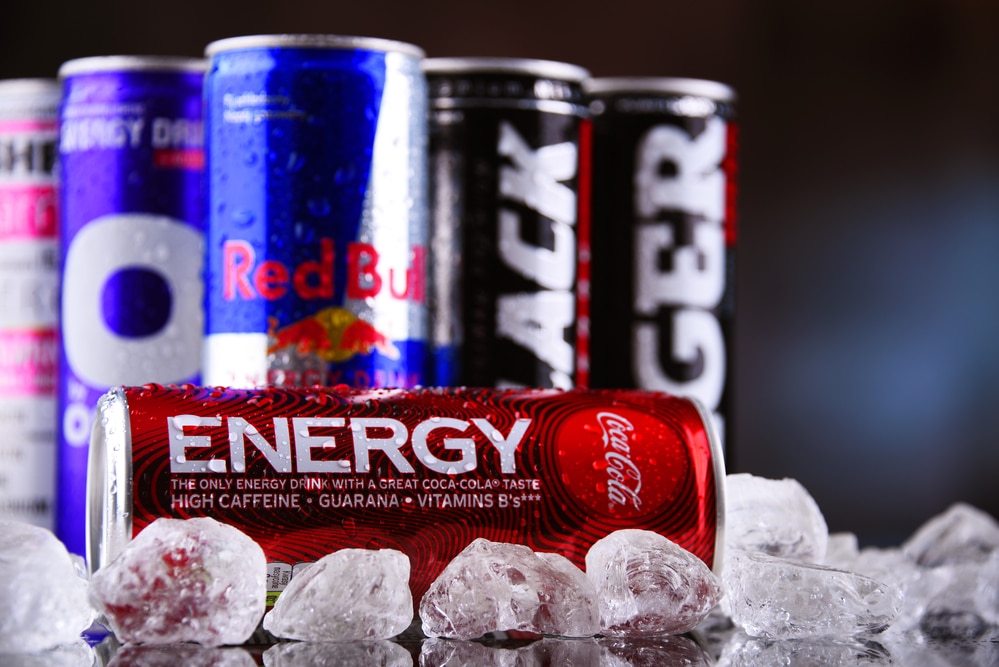
The timing of breastfeeding after consuming an energy drink is crucial to minimize the transfer of caffeine to the baby through breast milk.
After drinking an energy drink, it’s generally recommended to wait at least 3 to 4 hours before breastfeeding. This allows your body to metabolize and eliminate a significant portion of the caffeine, reducing the amount passed on to your baby.
According to National institute of Health, the peak concentration of caffeine in breast milk occurs around 1 to 2 hours after consumption.
Waiting a few hours before breastfeeding helps ensure that the caffeine levels in your breast milk have decreased, minimizing the potential impact on your baby’s sleep or behavior.
Generally, The time it takes for caffeine and other ingredients to clear your system and potential impacts on your breast milk can vary due to several factors:
1. Caffeine Metabolism: Everyone metabolizes caffeine differently. Some may clear it from their system within 4-6 hours, while others may take up to 12 hours. Factors like age, genetics, medications, and even liver function can influence this rate.
Energy drinks like Celsius may last in your system for 4-6 hours.
2. Amount of Caffeine Consumed: The higher the caffeine content in the energy drink, the longer it will take to clear your system. For example, one can of Celsius contains 200mg of caffeine, which might take significantly longer to clear than a low-caffeine soda with 30mg.
3. Other Ingredients: Apart from caffeine, energy drinks often contain other stimulants like guarana and even artificial sweeteners. These ingredients might also impact your breast milk and interact with caffeine, further extending the timeframe.
4. Baby’s Sensitivity: Babies’ sensitivity to caffeine varies. Some may show signs of fussiness, irritability, or sleep disturbances even with small amounts, while others might seem unaffected.
Do energy drinks like CELSIUS decrease milk supply of breastfeeding mothers?
While occasional and moderate consumption of energy drinks like CELSIUS is generally considered safe for breastfeeding mothers, excessive intake may potentially impact milk supply.
Energy drinks often contain caffeine and other stimulants, which, when consumed excessively, can lead to dehydration.
Dehydration is a known factor that may affect milk production. Caffeine, being a diuretic, can contribute to increased urine output, potentially leading to fluid loss. In turn, inadequate hydration can impact a breastfeeding mother’s milk supply.
It’s crucial for breastfeeding mothers to maintain proper hydration by drinking an ample amount of water throughout the day. If energy drinks are consumed, it’s advisable to do so in moderation and be mindful of overall caffeine intake.
What energy drinks are safe while breastfeeding?
It’s important to remember that no energy drink is truly “safe” to consume while breastfeeding due to the potential risks associated with caffeine and other ingredients.
However, some brands offer options with lower caffeine content and fewer potentially harmful additives compared to Celsius and other conventional energy drinks. Here are some brands to consider, with caveats:
1. Motherlove More Energy Latte: (18mg caffeine per serving)
This organic tea latte utilizes 70mg of natural caffeine from green tea and gentle herbs like maca and ashwagandha.
These herbs offer a balanced energy boost without the jitters often associated with conventional energy drinks. Additionally, the latte format provides a satisfying creamy texture and additional nutrients from organic milk.
2. Hiya Sparkling Water: (50mg caffeine per serving)
Available in a variety of refreshing fruit flavors, Hiya offers 50mg of natural caffeine from green tea without any unnecessary sugar or artificial sweeteners.
It also boasts prebiotics and electrolytes, keeping you hydrated and energized throughout the day. The sparkling water base is a light and healthy alternative to sugary sodas often found in traditional energy drinks.
3. Guayaki Yerba Mate: (35mg caffeine per serving)
Traditionally enjoyed in South America, yerba mate offers sustained energy due to its unique blend of caffeine and L-theanine. L-theanine acts as a calming agent, counteracting the potential for jitters often associated with caffeine alone. Choose organic brands like Guayaki for quality and controlled caffeine content.
4. Matcha Green Tea: (30mg caffeine per serving)
Matcha delivers a moderate dose of caffeine (around 30mg per serving) alongside L-theanine, promoting both alertness and calmness.
It’s an excellent choice for a focused energy boost without the crash sometimes associated with coffee. Enjoy Matcha brewed traditionally or blended into smoothies for a delicious and nourishing treat.
5. Sparkling Kombucha(15mg caffeine per serving)
Naturally fermented kombucha provides a gut-friendly probiotic boost alongside a mild caffeine content (around 15mg per serving).
Opt for flavors with minimal added sugar to maximize the health benefits. The light fizz and tangy flavor offer a refreshing alternative to regular water when you need a pick-me-up.
6. Chicory Coffee Alternative(Caffeine-free)
Roasted chicory root acts as a natural coffee substitute, mimicking the taste and texture of coffee without the stimulant effect. This makes it a perfect choice for breastfeeding moms who miss their morning coffee ritual.
Look for brands like Teeccino, which often blend chicory with additional herbs and adaptogens for added health benefits.
7. Sparkling Water with Fruit Infusions: (Caffeine-free)
Opt for naturally flavored sparkling water brands like LaCroix or Perrier for a refreshing boost without caffeine or unwanted additives.
Choose flavors you enjoy and add a squeeze of fresh fruit for additional vitamins and a touch of sweetness. Remember, hydration is key for energy levels, and plain sparkling water can be equally effective in keeping you feeling fresh and alert.
Start with small amounts and observe your baby’s response to any caffeine intake. Always prioritize a balanced diet, adequate sleep, and regular exercise for optimal natural energy levels throughout your breastfeeding journey.
What can You take for energy while breastfeeding: Alternatives to Energy Drinks
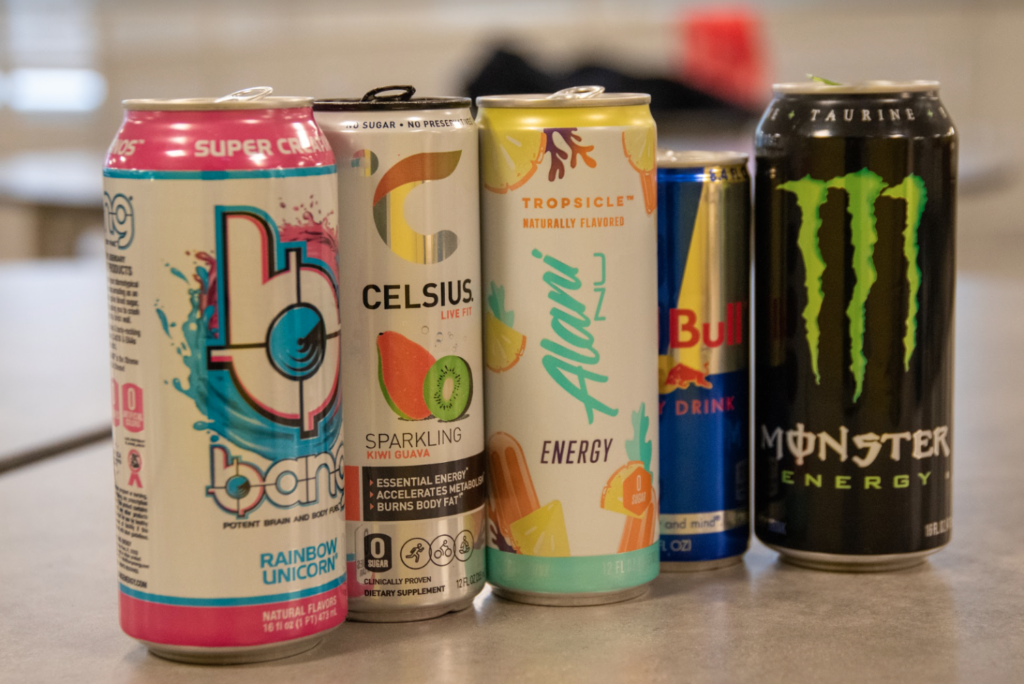
Amid concerns about the safety of energy drinks during lactation, it is essential for breastfeeding mothers to explore alternative, safer options to fulfill their energy requirements. Here are some recommended alternatives:
Coffee and Tea
Opt for a cup of coffee or tea, ensuring that your total caffeine intake doesn’t exceed two cups per day. These traditional beverages offer a mild caffeine boost without the inclusion of herbal ingredients and excessive sugars commonly found in energy drinks. It’s crucial to keep caffeine consumption below 300mg daily to maintain a healthy balance.
Natural Juices and Soups
Incorporate healthy and natural juices and soups into your daily diet. These alternatives not only help sustain energy levels but also contribute to preventing dehydration and boosting overall immunity.
Embrace a balanced diet, stay adequately hydrated, and expose yourself to sunlight for comprehensive rejuvenation.
Power Naps
Combat fatigue and regain energy with power naps. Short naps taken during the day can be remarkably effective in revitalizing the body and enhancing alertness.
Exercise Routine
After consulting with a healthcare professional, consider following a suitable exercise routine to gradually build stamina and enhance overall well-being. Regular physical activity is known to contribute positively to both physical and mental health.
By choosing these alternatives, breastfeeding mothers can ensure a safer and more nourishing approach to maintaining their energy levels without resorting to the potential risks associated with energy drinks. Always consult with a healthcare provider to tailor these alternatives to your individual health needs.
Conclusion: Energy drinks like Celsius while breastfeeding
So, the decision to consume energy drinks like Celsius while breastfeeding requires careful consideration. While moderate caffeine intake, up to 300 milligrams daily, is generally deemed safe, the diverse ingredients in energy drinks pose potential risks.
Our firm recommendation is to opt for energy drinks with a caffeine content ranging between 100-200 milligrams per day during breastfeeding.
Decoding these ingredients, ranging from sugars and taurine to herbs and additional components, reveals uncertainties about their impact on breastfeeding babies.
The lack of mandatory labeling adds complexity, urging breastfeeding mothers to consult healthcare professionals before consuming energy drinks.
Safer alternatives like coffee, tea, natural juices, and maintaining a balanced diet offer energy without compromising breastfeeding health.
Prioritizing moderation and choosing best time to drink Celsius energy drinks ensures a positive breastfeeding experience for both mother and baby.
FAQS: Energy drinks while breastfeeding
What are the risks of consuming energy drinks while breastfeeding?
Energy drinks may pose risks due to their caffeine content, sugars, and additional ingredients. Excessive caffeine intake can lead to irritability in sensitive infants. The sugars in these drinks may contribute to health issues in lactating women. Consulting with a healthcare professional is advised.
Some users argue that Celsius drinks may give you acne breakouts.
Can I drink one Red Bull while breastfeeding?
It is generally considered safe for breastfeeding mothers to consume one Red Bull while breastfeeding. One standard 8.4-ounce can of Red Bull contains approximately 80 milligrams of caffeine.
Moderate caffeine intake, defined as up to 300 milligrams per day, is generally considered safe during breastfeeding, as only a small percentage of the caffeine a mother consumes passes into breast milk. Drinking one Red Bull, with its caffeine content of 80 milligrams, falls within this moderate range.
How long after drinking Red Bull can I breastfeed?
After consuming a Red Bull, it’s advisable to wait approximately two hours before breastfeeding. This allows the peak caffeine levels in your bloodstream to decrease, minimizing the amount passed on to your baby through breast milk.
How do I know if caffeine from energy drinks is affecting my breastfed baby?
Signs of caffeine sensitivity in a breastfed baby may include fussiness, irritability, and difficulty settling. Observing your baby’s behavior, sleep patterns, and feeding routine can help identify any adverse effects.
How much caffeine can a breastfeeding mom have?
A breastfeeding mom can safely consume up to 300 milligrams of caffeine per day. This includes all sources, such as coffee, tea, and energy drinks.
How does caffeine from energy drinks affect baby?
While minimal caffeine passes into breast milk, higher intake might lead to fussiness and poor feeding in sensitive babies. Moderation is key to prevent adverse effects on the baby.
What drinks to avoid when breastfeeding?
Avoid excessive caffeine-containing drinks, alcohol, and drinks with added sugars. Opt for water, herbal teas, and natural juices as healthier alternatives.
How long does energy drink affect breast milk?
Energy drinks’ caffeine content peaks in breast milk one to two hours after consumption. To minimize its impact on the baby, it is best to wait for 3-4 hours before feeding baby.
These guidelines help ensure a healthy breastfeeding experience for both mom and baby.
